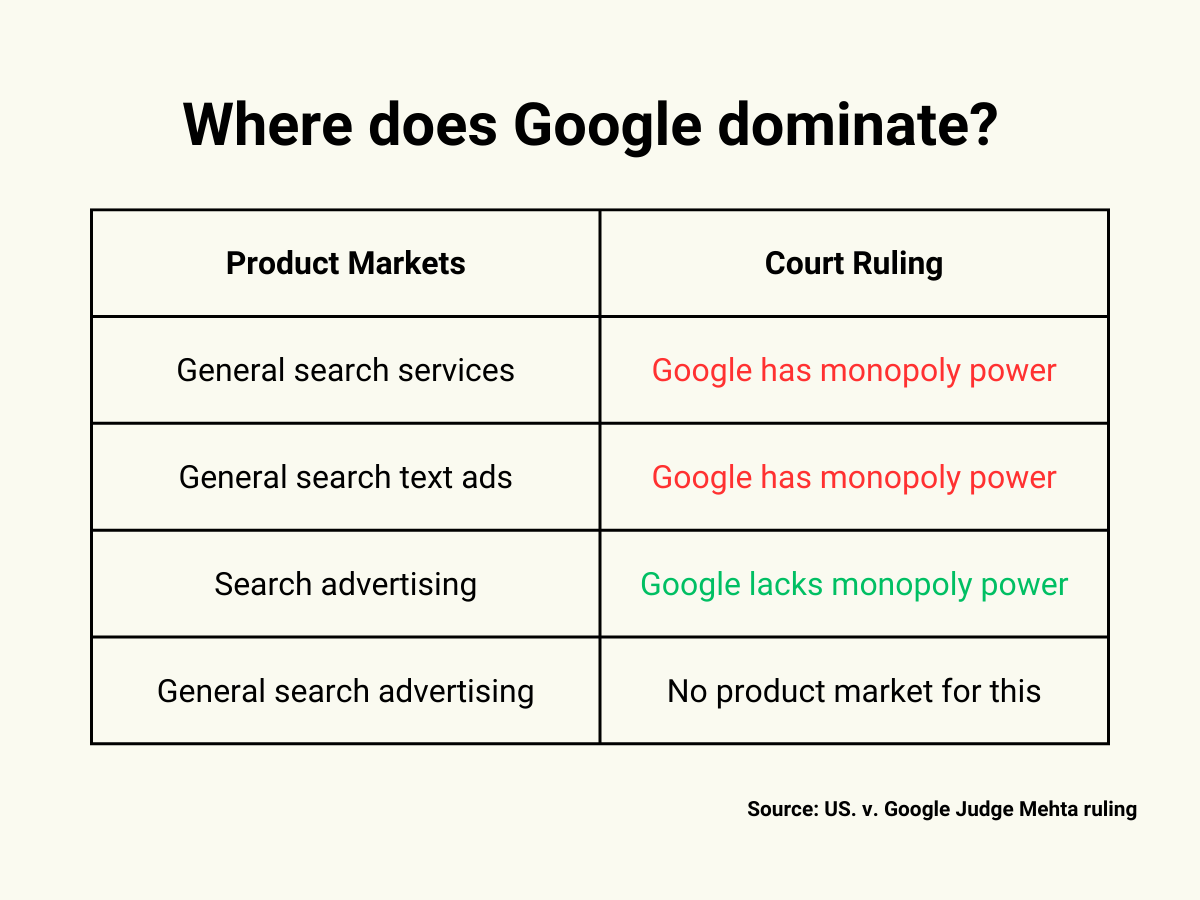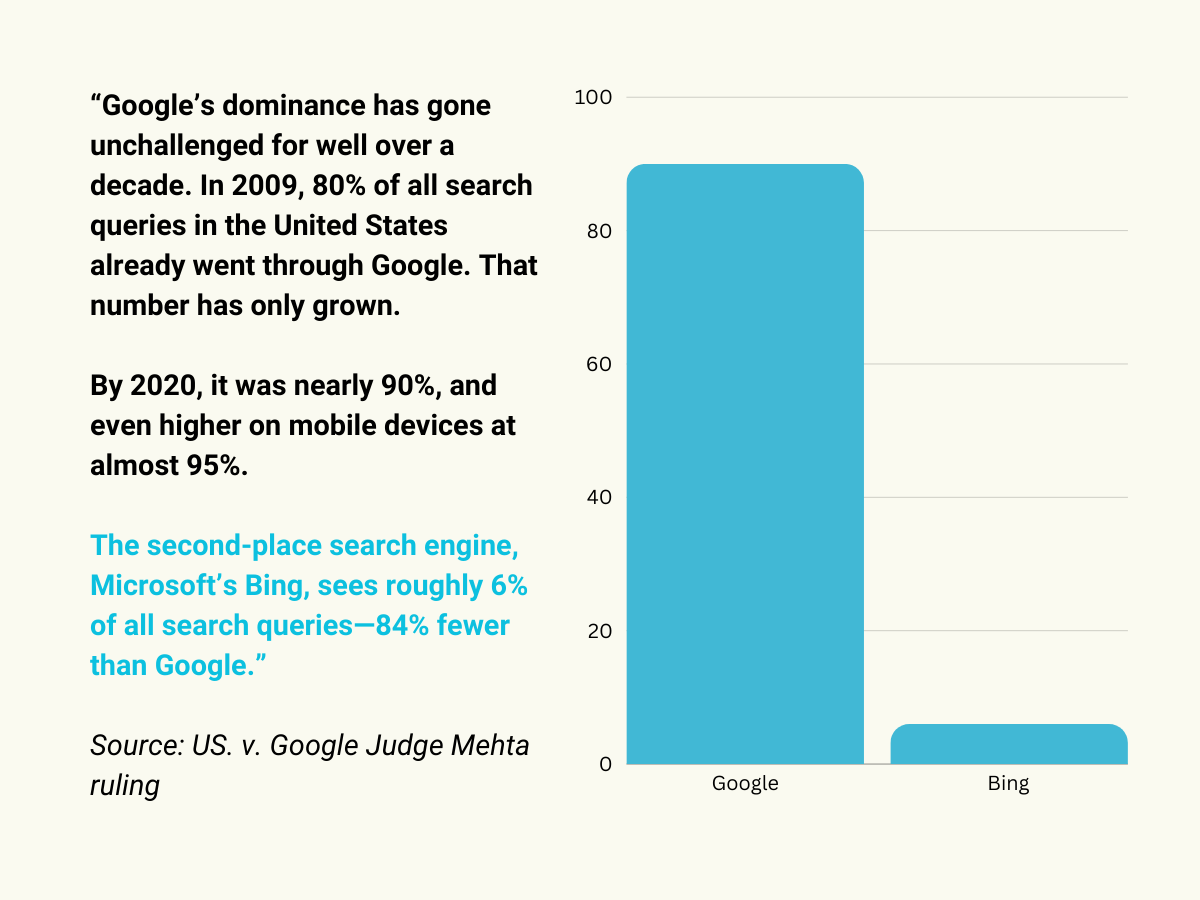The story to date: Google has misplaced a significant antitrust case introduced in opposition to it by the US Division of Justice that sought to show that the tech big held a monopoly within the promoting and internet search sectors. Within the 10-week-long case final yr, high-profile tech leaders equivalent to Google CEO Sundar Pichai and Microsoft CEO Satya Nadella debated Google’s search engine dominance and argued whether or not it was because of the firm’s deserves or its unfair practices. In the long run, US District Decide Amit Mehta dominated, in response to a court docket submitting dated August 5, 2024, that Google was a monopolist.
(Uncover the complexities of our digital world on The Interface podcast, the place enterprise leaders and scientists share insights that form tomorrow’s innovation. The Interface can be accessible on YouTube, Apple Podcasts, and Spotify.)
What occurred to Google within the antitrust case?
In accordance with the ruling, Google’s dominance within the search market was achieved primarily by a technique of unique distribution agreements, or default distribution. This refers back to the means Google entered into profitable contracts with “browser builders, cellular machine producers, and wi-fi carriers” to be the primary or default search engine given to customers of such providers or new telephones. Google pays for this privilege, shelling out greater than $26 billion for it in 2021, in response to the court docket.
“After rigorously reviewing and weighing the testimony and proof of the witnesses, the court docket concludes that Google is a monopolist and has acted as such to take care of its monopoly. It has violated Part 2 of the Sherman Act,” the ruling states, referring to a US legislation that makes company monopoly or makes an attempt to monopolize against the law.
In accordance with the court docket, Google used its monopoly energy in two markets: normal search providers and normal search textual content adverts.
“Importantly, the court docket additionally finds that Google has exercised its monopolistic energy by charging supracompetitive costs for normal search textual content adverts. This conduct has enabled Google to acquire monopolistic advantages,” the submitting mentioned.
The court docket additionally sharply criticized Google’s failure to protect worker correspondence that might have served as proof.
Nevertheless, a number of the court docket’s findings had been in favor of the tech big. It discovered that Google didn’t have monopoly energy within the search promoting market. The court docket additionally famous that there was no product marketplace for normal search promoting and that Google was not responsible for actions involving its promoting platform.

Court docket dominated Google had monopoly energy in two product markets | Picture credit score: Sahana Venugopal/THE HINDU; compiled on Canva
As well as, Google won’t be penalized for its failure to protect worker chat messages, although the court docket warned that it might not be so “fortunate” in a future case.
Curiously, the choose famous that Google had launched the “highest-quality search engine within the business, which has earned the belief of lots of of tens of millions of each day customers.”
How do monopolistic practices hurt the buyer expertise?
Regulators around the globe monitor using expertise by firms of their nations to stop the focus of energy within the fingers of some entities. This ensures wholesome competitors available in the market phase, so that every one contributors attempt to do the very best for his or her prospects.
Nevertheless, when a monopoly emerges, rivals could also be pressured out of the market, whereas the extra highly effective agency might abuse prospects as a result of it has only a few choices. These companies additionally lose the inducement to proceed bettering the standard of their product.
The court docket ruling within the Google case even pointed to this as a danger issue.
“Google’s indifference is no surprise. In 2020, Google carried out a top quality degradation examine, which confirmed that it could not lose search income if it considerably diminished the standard of its search product,” the doc notes, including: “The truth that Google makes modifications to the product with out concern that its customers may go away elsewhere is one thing that solely an organization with monopoly energy may do.”
What did the US Division of Justice say?
The US Justice Division hailed the ruling as a public victory for US Web customers.
“This victory in opposition to Google is a historic win for the American individuals,” Lawyer Basic Merrick B. Garland mentioned in an announcement posted on the Justice Division’s web site. “No firm, irrespective of how massive or influential, is above the legislation. The Division of Justice will proceed to vigorously implement our antitrust legal guidelines.”
Google is way from the one firm within the regulator’s line of sight, because the US Division of Justice can be reportedly teaming up with the US Federal Commerce Fee (FTC) to take motion in opposition to different huge tech gamers on antitrust grounds, together with Microsoft, OpenAI and Nvidia, in response to The New York Instances.

The court docket ruling highlighted the stark distinction between Google and Bing’s person share | Picture credit score: Sahana Venugopal/THE HINDU; compiled on Canva
What occurs subsequent?
Google is more likely to attraction.
“This determination acknowledges that Google gives the very best search engine, however concludes that we shouldn’t be allowed to make it available,” Google’s president of world affairs, Kent Walker, was quoted as saying by AP.
Decide Mehta didn’t announce any tremendous that Google should pay; the choice on applicable actions to deal with Google’s dominance might be made in one other set of proceedings that can start subsequent month, in response to the information outlet.
Individually, the US Division of Justice and Google are set to face off in one other antitrust trial focusing on the web firm’s promoting expertise.


